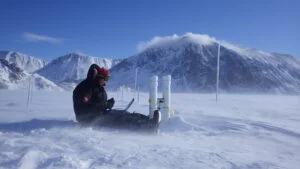If we’re going to be successful in saving Canada’s lakes and rivers, we have to look beyond protecting single species and focus on broad-based solutions that protect and restore entire freshwater ecosystems.
The major threats to the health of our watersheds are many — pollution, overuse, habitat loss and fragmentation, alteration of flow, climate change and invasive species. And yet, even in 2020, Canada’s freshwater habitats remain largely unprotected and understudied.
While the report paints a promising picture of watershed health in many parts of Canada, the authors note that a lack of data made it difficult to determine the level of threat to most watersheds. Here are five key recommendations to make things better.
Boost community-based water monitoring
Community-based monitoring is thriving and expanding in Canada, with data collectors ranging from volunteer monitors to large-scale partnerships. With the proper training, community-gathered data is just as accurate as data collected by professional scientists — and can help fill the monitoring gaps in remote areas.
Look beyond the obvious
We tend to monitor the water in the most highly populated parts of the country, such as along the St. Lawrence. The report suggests focusing increased attention on areas of emerging concern — such as Northern Ontario and Quebec, where populations are lower but impacts from resource extraction and electricity generation are high.
Create data hubs and open databases
The easier it is to share research, the better we can all understand what’s happening with our watersheds. That water-quality data must also be accessible and consistent so governments, researchers, and individuals can access it and use it. Evidence-based conservation decisions are the key to healthy freshwater systems for all.
Commit to being on time
The health of any watershed can change quickly, which is why the report insists that consistent and timely monitoring must be the standard, rather than the goal.
Share the news
It’s not news if no one knows what you’ve discovered. All that data being collected on our water systems needs to be turned into action. And that means getting the information into the hands of communities, water stewards, and decision-makers.
With these goals in mind, WWF-Canada has launched a 10-year plan, working with Indigenous and local communities, companies, and government to monitor and rebuild resilient habitats.
Once we better understand where we’re at, our water protectors can measure how our commitments are making a difference.
Read the full 2020 Watershed Reports.





